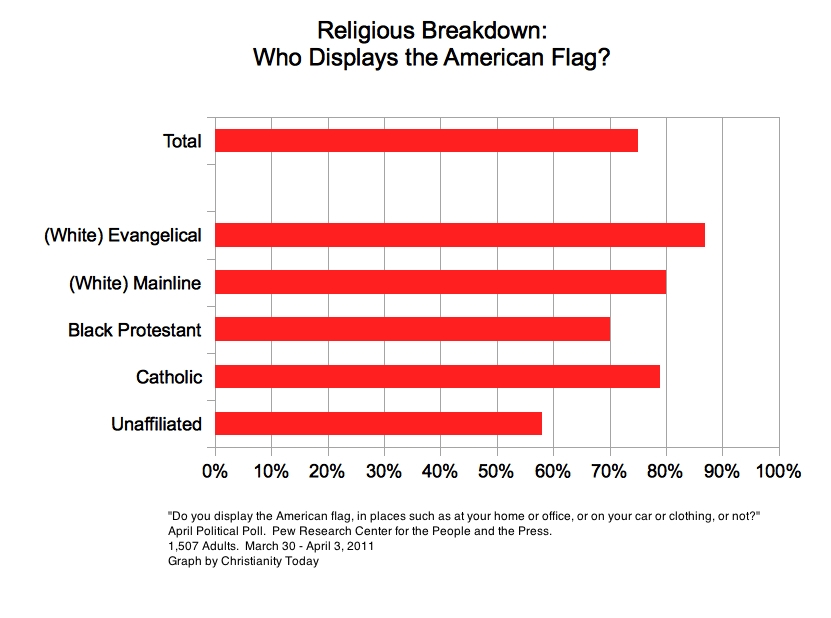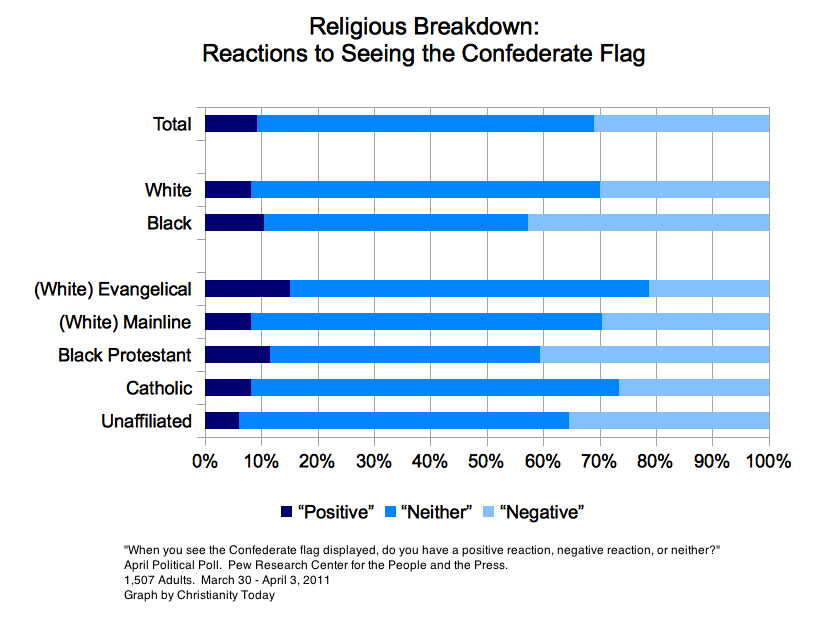A new poll suggests that 78 percent of religious people display the American flag while 58 percent of nonreligious people do the same. The poll finds that evangelicals are the most likely to show off the stars and stripes.
The American flag is a ubiquitous part of life in the United States. People pin it to their jackets, hang it outside their homes, and stick it to the bumpers of their cars. In its March 30-April 3 survey, Pew Research Center for the People and the Press asked 1,507 Americans if they “display the American flag, in places such as at your home or office, or on your car or clothing.” Three-quarters of Americans said they displayed the flag.
Showing off the American flag is most common among those who belong to a religious tradition; 78 percent of religious Americans show off the flag. More than 80 percent of evangelicals, mainline Protestants, and Catholics display the flag. Black Protestants are slightly less likely to do so, but overall the differences between religious groups are small and are not statistically different from each other.

Together, members of these religious traditions are more likely to display the flag than those who are not affiliated with a religion. About one-fifth of Americans are not actively part of a religion. Only 58 percent of these unaffiliated display the flag.
Even though the flag is a national symbol, it is more likely to be displayed by those on the right than the left. The vast majority of political conservatives display the flag (87 percent). Liberals (55 percent) and moderates (75 percent) were less likely to do so.
Pew also asked about the flag as part of a series of questions on the Confederate flag and the American Civil War, which began 150 years ago this week.
The war may have occurred one and a half centuries ago, but a majority of Americans (56 percent) believe that the Civil War is still relevant to American politics today. One-third of Americans said it was appropriate for public officials to praise Civil War leaders, and more Americans (48 percent) said the war was mainly caused by states’ rights (38 percent said it was about slavery). There were few differences between different religious groups on these items.

Eight percent of Americans display the Confederate Flag. About a third of adults (30 percent) have a negative reaction to seeing the stars and bars. Only 9 percent have a positive reaction. A majority (58 percent) feel neither positive nor negative.
White evangelicals have a more positive reaction to the Confederate flag (15 percent), which is higher than the positive feelings among mainline Protestants, Catholics, and those with no religion. About the same number of black Protestants (13 percent) also feel positive feelings toward the Southern symbol.
However, the key answer to this question may be the percentage saying that they feel negative toward the Confederate flag. Four-in-ten African-Americans have a negative reaction when they see the flag, compared to only three-in-ten whites. So while white evangelicals and Black Protestants have the same percentage feeling positive toward the Confederate flag, black Protestants were twice as likely to have a negative reaction (39 percent vs. 21 percent).








